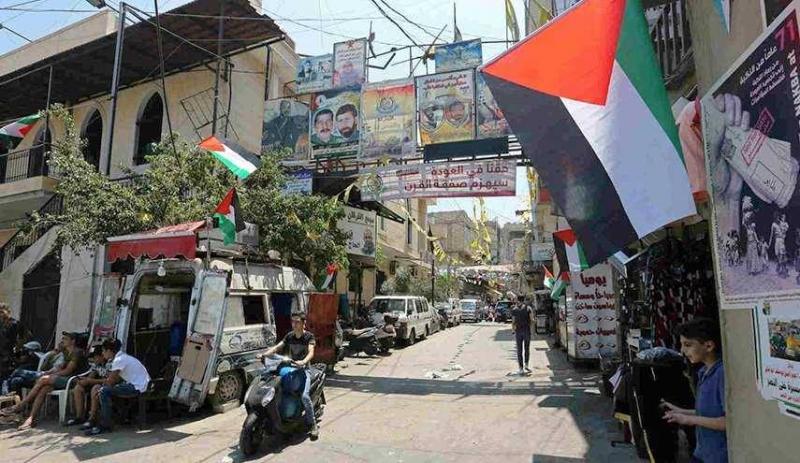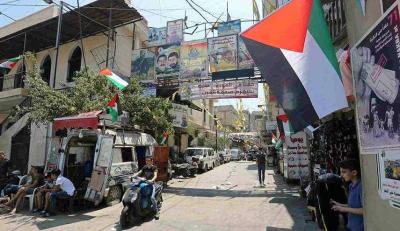In a development that may impact the security situation of Palestinian camps in Lebanon, Israel has accused the leader of the Fatah movement, Major General Munir Al-Maqdah, of working to recruit elements in Judea and Samaria—Jerusalem and the West Bank—to commit terrorist acts and promote the smuggling of Iranian-made weaponry, as well as transferring funding through various means to the cells he has recruited in these areas. This accusation marks the first and most serious allegation against a prominent Palestinian official from the camps in Lebanon, who resides in the Ain al-Hilweh camp, and is part of a broader accusation against Iran for smuggling explosives and anti-tank mines to carry out terrorist operations against Israeli targets. It is noteworthy that Al-Maqdah remains within Fatah and has not resigned from it.
Al-Maqdah serves as the Deputy Commander of the "Palestinian National Security Forces" in Lebanon and is a significant military figure with strong influence, enjoying the support and backing of many tribal groups in the camp and residents of his hometown, Al-Manshiyyah. He serves as a security guarantee for stability in the camp and the surrounding Lebanese area, maintaining good relationships with various Palestinian factions, including the Islamic ones.
Al-Maqdah gained prominence after the signing of the Oslo Accords between the Palestine Liberation Organization (PLO) and Israel in September 1993, when he opposed these agreements and engaged in confrontations against Fatah, later announcing the establishment of the Al-Aqsa Martyrs' Brigades and training groups in weaponry within the camp, as an expression of adherence to the option of resistance. He has survived multiple assassination attempts in the camp, with Israel having tried to assassinate him during its aggression against Lebanon in 2006, targeting his home with a guided missile, but he survived, as well as an attack on a military site associated with him that resulted in the deaths of two people and injuries to six others.
While none of the Palestinian factions, national or Islamic, have commented on this official accusation issued by the spokesperson for the Israeli General Security Service and the army spokesperson, Palestinian sources expressed to "Nada Al-Watan" their fears that this may be a precursor to an assault on the Palestinian camps in Lebanon. Al-Maqdah has been out of public communication, and attempts to reach him or contact him have failed, as he has surrounded himself with security measures as a precaution.
Since the initiation of the Al-Aqsa Flood operation, Israel has pursued a number of Palestinian officials in Lebanon who serve as a communication link with military cells in the West Bank, notably including the Deputy Head of Hamas, Saleh Al-Arouri, who was assassinated in the southern suburb (January 4, 2024), and other military officials involved in operations launched from southern Lebanon, the latest being the Qassam member Hadi Mustafa (March 13, 2024).
According to Palestinian sources, Israeli assassination operations confirm that the Palestinian camps in Lebanon are not distant from the military, political, and popular battle with Israel, and that they support Gaza, its people, and its resistance, as well as the protesters in the West Bank through various means, whether military operations or through marches, demonstrations, and sit-ins that have not ceased to date, according to "Nada Al-Watan."
On another note, Palestinian sources reported that an Israeli drone strike on the road to the town of Al-Suwairi in western Bekaa, approximately five kilometers from the Syrian border, targeted a Hamas leader who survived, while a Syrian civilian was killed in the attack. This strike is considered the first targeting of this area in Lebanon since the escalation of military actions in the south due to the Israeli aggression on Gaza.




